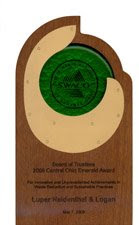
The urban garden trend is growing (no pun intended) for reasons that are social, political, economic and environmental. Columbus is starting to see the wisdom of cities like New York, Detroit and Youngstown, which are transforming properties that had been fertile ground for lawlessness & disorder into just plain fertile ground.
From a social perspective, blighted urban properties contribute to looting, vandalism and drug abuse. By razing abandoned buildings, and/or turning weed and junk-laden vacant lots into urban gardens, we create opportunities for healthy community interaction. Groups large and small, and people young and old, can come together to work the earth. Beyond turning an eyesore into a pleasant space, community gardens give back in the tangible form of healthy fruits and vegetables that are often unavailable in underserved areas.
From a political perspective, urban gardens are following the lead of our First Family. Michelle Obama heeded the call of over 10,000 people who signed off on the White House Organic Farm Project, which urged the newest White House occupants to set an example by growing a garden. They even created a blog to track the progress (http://www.whitehouse.gov/blog/09/04/09/Planting-the-Garden/).
Urban gardens yield a fantastic confluence of economic and environmental benefits. Blighted urban properties diminish already-diminutive property values. By transforming abandoned buildings and hardscapes into productive plots, we decrease pollution and stormwater runoff and we could increase the value of surrounding properties. Although I’m still waiting on some research to bear out the theory of increased property values, it stands to reason that a house abutting a pleasant open space will do better on the market than a property next to broken-down crack house.
Long story short, LNL is proud to have done its small part to promote community gardening in Columbus. There’s no bad reason to get in touch with your inner urban farmer!
Read more!

